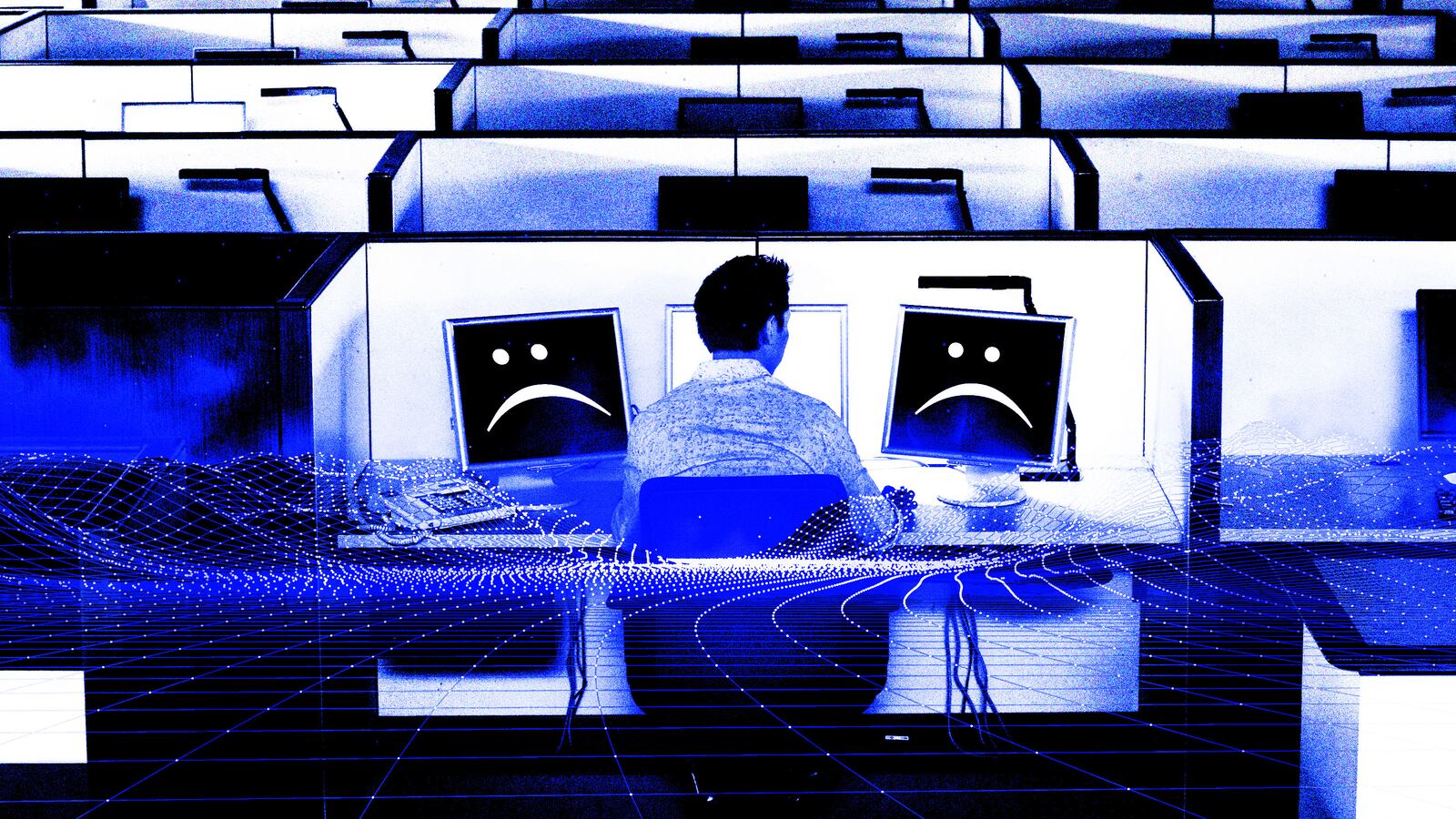Much has been made about the disruptions that artificial intelligence is bringing to the workforce in the past few months. While we’ve yet to see whether or not AI will be the existential, world-ending threat that some people make it out to be, there’s no doubt that it’s already making a big impact on people’s livelihoods.
And, it turns out, AI might cause a whole lot of headaches even if it doesn’t steal your job.
An international team of researchers published a study on Monday in the Journal of Applied Psychology where they found workers that frequently interacted with AI for their jobs were more likely to experience loneliness, insomnia, and increased rates of drinking when compared to those that didn’t. The authors note that this underscores the innate human need for social interactions in and out of the workplace.
“The rapid advancement in AI systems is sparking a new industrial revolution that is reshaping the workplace with many benefits but also some uncharted dangers, including potentially damaging mental and physical impacts for employees,” Pok Man Tang, an assistant professor of management at the University of Georgia and lead author of the study, said in a statement.
The study’s findings were made based on four experiments conducted in the U.S., Taiwan, Indonesia, and Malaysia. In one, 126 people who worked in real estate for an Indonesia property management company were divided into two groups: one was instructed not to use AI for three consecutive days, while the other were told to use it as much as possible. The latter group reported increased rates of loneliness and insomnia.
Another experiment in Taiwan similarly divided up a group of 166 engineers who worked at a biomedical company. Workers who interacted more with the AI systems also experienced higher rates of loneliness and insomnia. And alarmingly, they also showed increased rates of after-work alcohol consumption as well.
Interestingly, the researchers found that the results weren’t necessarily all bad. Those who interacted more with AI were reported to be much more helpful with coworkers, and would actively seek out their fellow employees to see how they can help them with their work. But the authors note this may simply be a result of this group feeling an increased need for social interaction.
“Humans are social animals, and isolating work with AI systems may have damaging spillover effects into employees’ personal lives,” Tang explained.
The authors said that the study should help inform the development of future AI systems to have more human-like qualities such as human voices. This could help simulate human social interactions to make things at least feel a little less like you’re interacting with a soulless robot.
Companies should also take care to limit their employees’ overall time interfacing with AI systems—and emphasize human social interaction and collaboration. Bots should be reserved primarily for repetitive tasks that require less creative and deep thinking.
“AI will keep expanding so we need to act now to lessen the potentially damaging effects for people who work with these systems,” Tang said.







